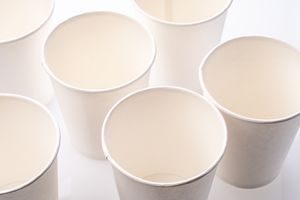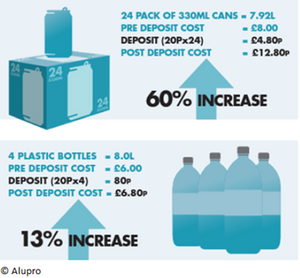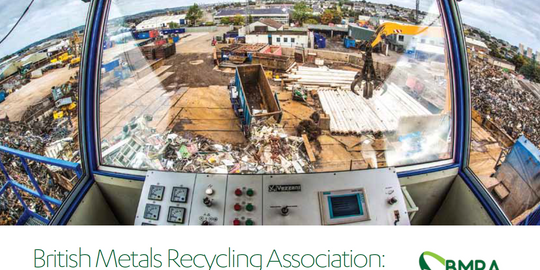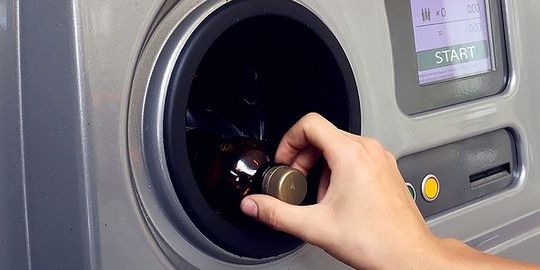Enterprising children making use a festival scheme

A blog by BMRA's Head of Policy and Public Affairs, Antonia Grey.
I was lucky enough to go to Latitude Festival this year, where what the comedians termed “child labour” was fully visible and endorsed by their parents.
You see, historically, the Festival had a deposit return scheme (DRS) on reusable, branded plastic pint and half-pint cups. It was simple. You simply swallowed the cost on your first drink (excuse the pun) and then each time you went for a new drink, you simply got a fresh cup. At the end of the event, you could hand in the cup and get your money back; or you could take it home with you. There was a similar scheme in place for single use cups, but it was sort of un-sung.
Now, having recognised the environmental impact of the branded cups (the number of times they needed to be used couldn’t outweigh the environmental impacts of paper cups), Latitude has shifted to only using single use paper cups, which have a 10p levy in the main arena. Cue the host of enterprising children who roamed the arena collecting cups into stacks that towered above their heads. I asked one boy, who was walking around with a sign offering his services – established 2022 don’t you know – how much money he had made. “£250”, he grinned. That is a lot of cups for one pint-sized child.
I had bemoaned the loss of the Latitude Cups but, upon reflection, this is probably a good move. (Unlike the move from proper beer to something that causes much (and continual) harrumphing amongst the men of the group I was in.) The children, and it was wholly the children, are learning the mechanics of deposit return schemes. I think that when the various DRS’ come into being, we might see them becoming bin scavengers in the home, bagging up cans and bottles to be taken to the nearest DRS machine. Interestingly, bottles and cans were also subject to the Latitude DRS, so even more money to be had for the youngsters!

There is no doubt that such behaviour may impact the budgets of local authorities and the waste management companies. Nevertheless, if it is the start of a real change in mindset amongst young people to look more closely at the disposable label applied to many goods they consume, this must be a good thing.
Of course, I remain deeply concerned that if the Government does not choose a variable rate, aluminium beverage cans will be disproportionately more expensive when looking at the volumes of beverage. (See image).
This model is already proving successful in Denmark, Norway, Finland and Sweden. Under the so-called Nordic Model, a varying deposit is levied on drinks containers based on their size and material, rather than a single flat rate. They have all seen their recycling rates increase since implementing their DRS; for example, Denmark has achieved a bottle and can recycling rate of 90 percent.
I also disagree with the claim that a variable rate is too confusing for consumers. In fact, a survey conducted for Alupro showed 84% of people in Scotland found the concept of a variable rate easy to understand, and 55% supported the concept.
As for Master “Established 2022”, will he be back next year, I asked. Of course, he said. I can only assume he will spend the next 10 months honing his offering, and he would be right to do so. By my calculation, there has to be, at the very least, £50,000 to be made across the whole weekend.


